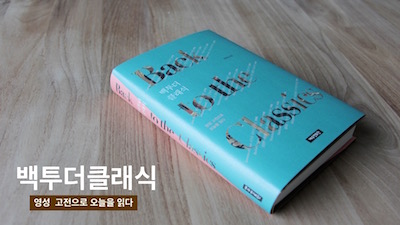토마스 머튼(1915-1968) 출생 100주년을 기념하여 발간된The Merton Seasonal 40, no. 1 (Spring 2015): 29-30에 기고한 에세이를 옮겨 놓는다.
Reconnection and Reformation:
A Korean Protestant Perspective on the Monastic Wisdom of Thomas Merton
What does Thomas Merton, an American Catholic monk, has to say to Korean Protestants today? The year of 2017 is the five hundredth anniversary of Martin Luther(1483-1546)’s posting of Ninety-five Theses on the door of the Wittenberg Castle Church, which was a historic event that sparked the Protestant Reformation in the 16th Century. After about five centuries from the Reformation movement, however, the Korean Protestant church, which claims that she is a proud inheritor of the legacy and spirit of the Reformation, is strongly challenged to reform themselves both by their members and neighbor citizens. Then, how can the Korean Protestant church remain faithful to her identity as a church ever reforming herself. I believe that a crucial way is to reconnect herself to the Christian monastic tradition, from which the first Protestants cut themselves off in their reformation process. Yet, this idea may seem to fundamental Protestants very dangerous even heretical because Martin Luther and John Calvin(1509-1564), the two prominent leaders of the Protestant Reformation, criticized the considered harmful effects and invalidity of the monasticism. To delve into this topic and to demonstrate the validity of reconnecting Protestant church to the monastic tradition, which has been an invaluable part of Christian spirituality and history, without denying the core spirits of the Reformation need a somewhat long discussion that is not allowed in this short essay. In my view, however, such reconnection is possible especially when we, Korean Protestants, take Thomas Merton as a gate to the deep-rooted monastic tradition.
As known well, Thomas Merton not only was well versed in the monastic tradition from the Desert Fathers and Mothers to the modern monastic movement, but also endeavored to hand down to the world the wisdom that he dipped up from his monastic life and studies. Although Merton usually had monks and nuns in mind as his primary readers or audience when he talked or wrote about the monastic life, he did not think that monastic wisdom was only for those who belonged to a religious order. He asserts that the adaptation of the monastic rule must be made, and the “variations in monastic observances are all good and all necessary, in so far as they make the monastic life accessible to all types of men.”[i] Therefore, I believe that for Korean Protestant, Thomas Merton, who had a deep interest and understanding in the Eastern spirituality, will be a helpful guide or at least an insightful interlocutor in adapting the monastic wisdom to the ordinary Christian life in the world as well as in establishing a Protestant monastic community. Also, Merton immersed himself in the monastic tradition and pursued a renewal of it, so his mature view on monasticism, which is both traditional and reformative, will help Korean Protestants to reform their church by reconnecting themselves not merely to the old monasticism but to the ever renewing monastic tradition. He writes that monastic tradition, “which is always old, is at the same time ever new because it is always reviving—born again in each new generation, to be lived and applied in a new and particular way.”[ii] In addition, I have contended in my unpublished paper that Merton read the Rule of Saint Benedict from the perspective of discipleship, and his understanding of the monastic life as a life of discipleship has valuable implications for Korean Protestant church in which discipleship is strongly recommended to her members as one of core ideals of the Christian life.
Although quite few Korean Protestants wish to live in a monastic community, now a day increasing number of them are attracted to the spiritual life or the contemplative life which is well developed and passed down through the monastic tradition. However, it is true that they have a few resources from which they can learn about the contemplative life. Thomas Merton who can serve as an experienced guide in such a pursuit is well known among Korean Catholics, but when it comes to Korean Protestants, he is far less known. Only one primary work and three secondary works have been published by Protestant publishers until now. Therefore, my wish for his one hundredth birthday is that more Korean Protestants find Thomas Merton as their spiritual friend and reliable guide in reconnecting themselves to the ever renewing monastic tradition.
[i] Thomas Merton, The Silent Life (New York: Farrar, Straus and Giroux, 1957), 61.
[ii] Thomas Merton, No Man Is An Island (San Diego: Harcourt, 1983), 151.



